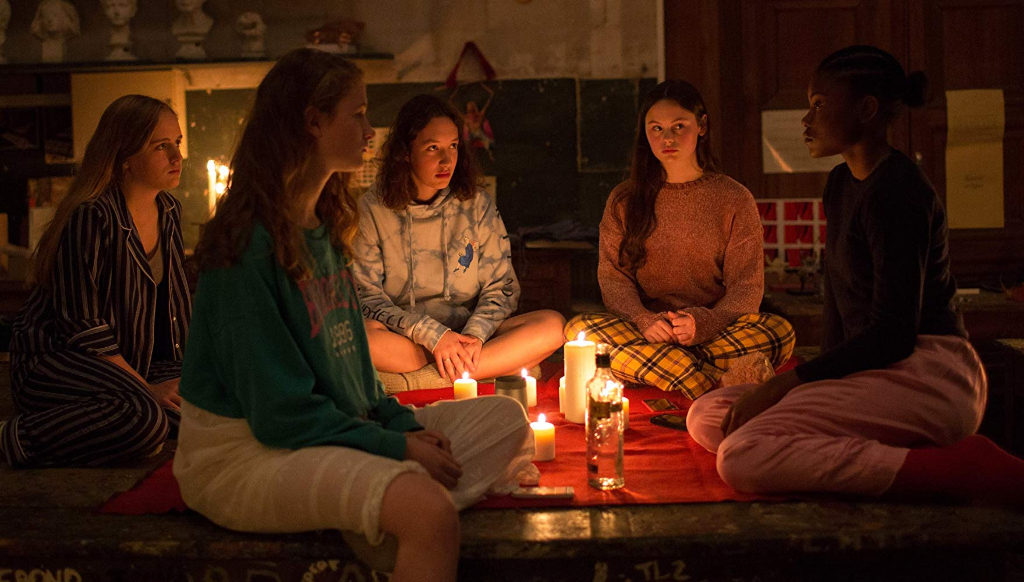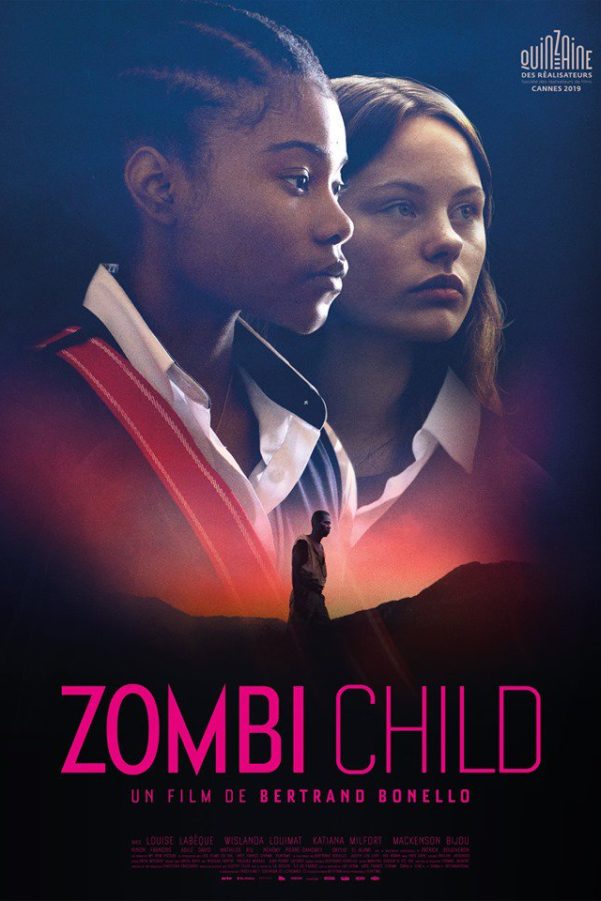Zombi Child

Few filmmakers are as capable of uniting the past and present through their cinema as Bertrand Bonello. His great House of Tolerance from 2011 was as much about late capitalism as it was about its subject, a family of prostitutes living in a brothel at the turn of the twentieth century – as indicated by its epilogue, which showed sex workers standing on the streets of modern-day Paris, alone and defenceless. And 2016’s Nocturama, a brilliant and provocative film about disillusioned young people enacting a series of terrorist attacks, was inspired by George Romero’s Dawn of the Dead, as its group of antiheroes holed up in an abandoned department store, trying on clothes as they waited for the police to catch them. Romero must have rattled around in Bonello’s mind, as his latest, Zombi Child, takes on one of the oldest subjects in cinema: the undead.
“Everything moves faster now, even zombies,” says one of the precocious teens in one of the film’s parallel strands, a posh girl’s school in modern-day France. Fanny (Louise Labèque) and her sorority are obsessing over a new girl from Haiti, Melissa (Wislanda Louimat), who’s got a few strange habits. She makes groaning noises when she sleeps, and she’d rather listen to music from her homeland than the profane rap favoured by the all-white sorority. Meanwhile, we keep flashing back to Haiti in 1962, where Melissa’s ancestor Clairvius (Mackenson Bijou) is poisoned and buried. He isn’t dead, though; he’s dug back up, and while he can’t speak, he can perform basic tasks. Bonello’s carefully researched portrayal sees him put to work on the fields at night, like a slave – he eventually escapes and roams the countryside, instinctively searching for his past love.
The zombies of Zombi Child are closer in conception to Jacques Tourneur’s I Walked with a Zombie and Wes Craven’s The Serpent and the Rainbow, in that they’re non-violent victims of disease, suffering a fate that robs them of their agency – it’s almost worse than death. But the effect this history has on the present isn’t always clear. It’s at its sharpest as Bonello makes a teen movie, where the racism and privilege of the girls are revealed, often in very funny ways. He emphasises the sterility of the classroom, and even pays homage to Carrie in one slow-motion shot.
Only it’s not much of a spoiler to say that Melissa doesn’t take revenge on the school for its micro-aggressions. Rather, we follow Fanny, whose path crosses with Melissa’s aunt Katy (Tatiana Wilfort), a practitioner of voodoo. By the climax, what started as a borderline academic exercise has morphed into full-blown visceral horror, as Bonello uses cross-cutting to simulate a nightmarish trance state. It’s sometimes hard to see what the director’s getting at, and he doesn’t always avoid the pitfalls of a white filmmaker tackling such racially charged material, but the ending brings it all together in ways unsettling and strange.
Sam Gray
Zombi Child does not have a UK release date yet.
Read more reviews from our Cannes Film Festival 2019 coverage here.
For further information about the event visit the Cannes Film Festival website here.






















Facebook
Twitter
Instagram
YouTube
RSS